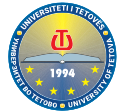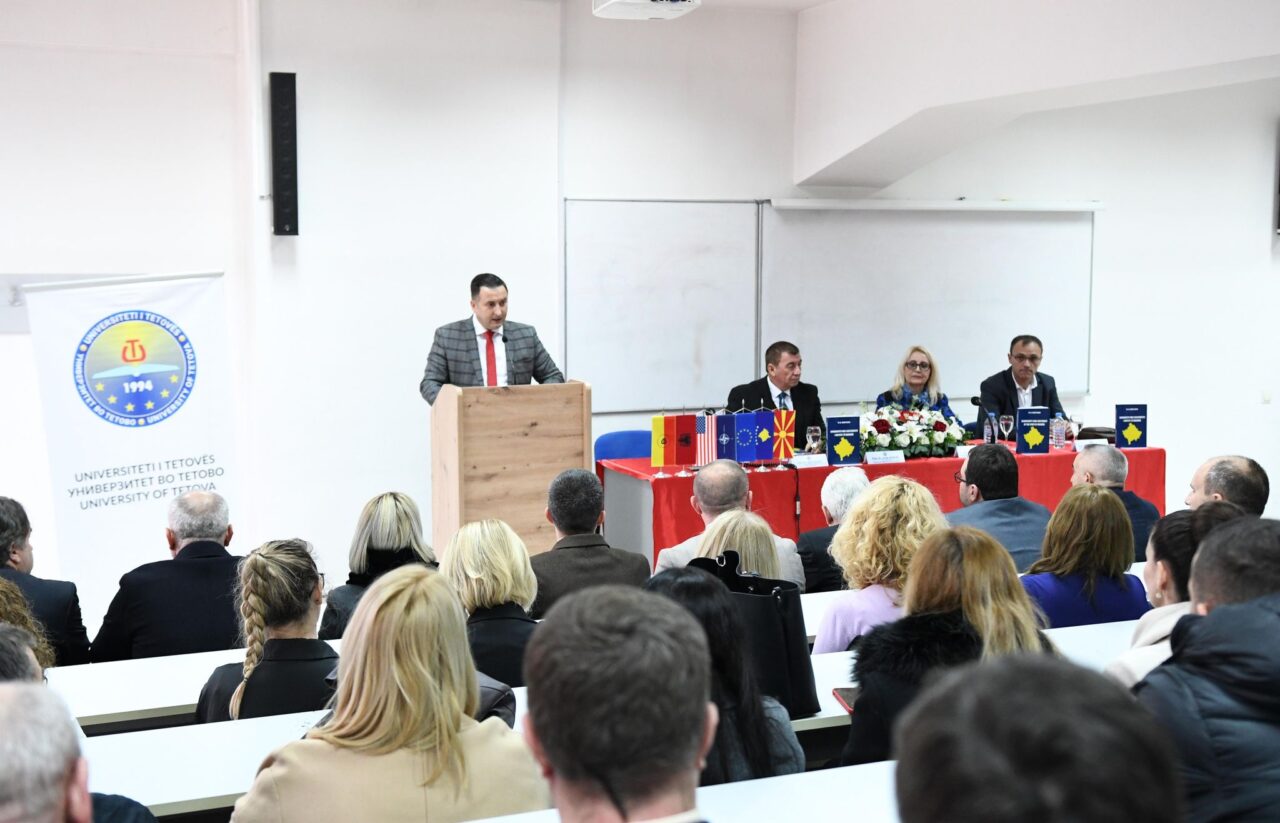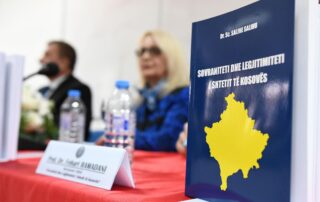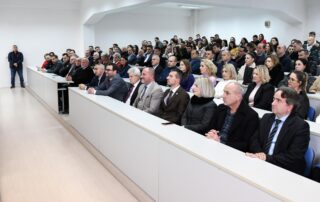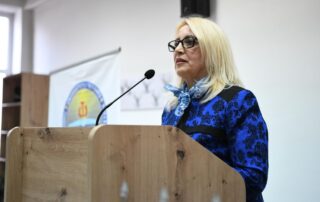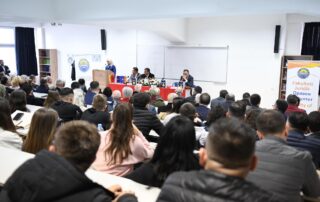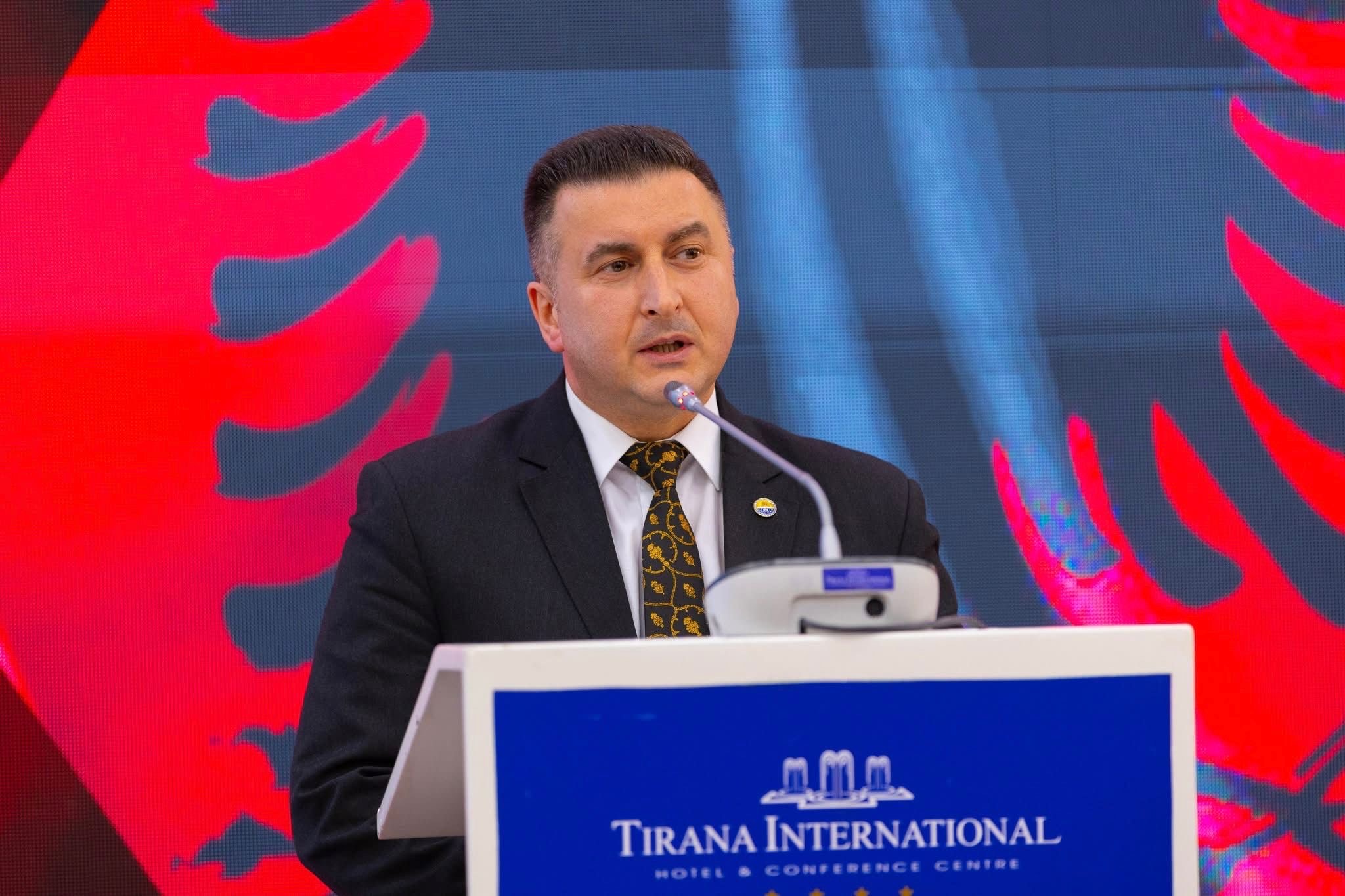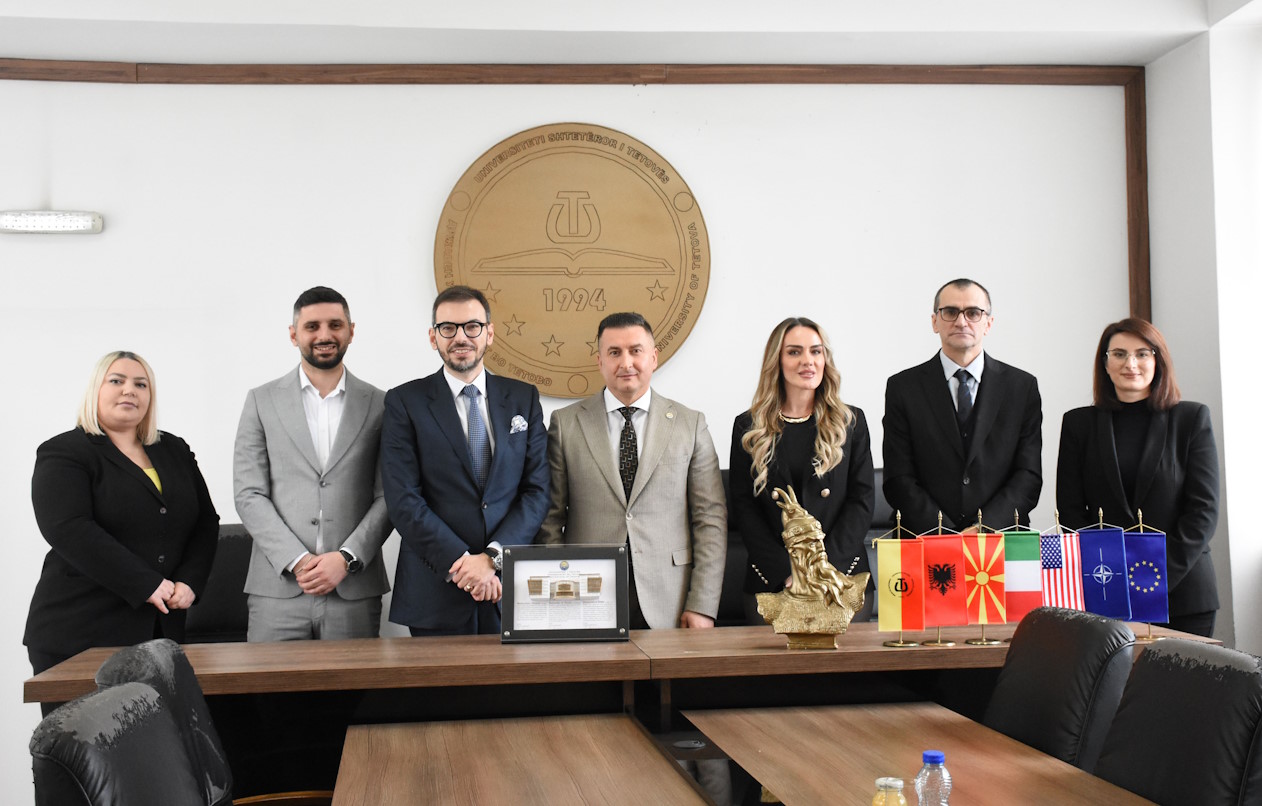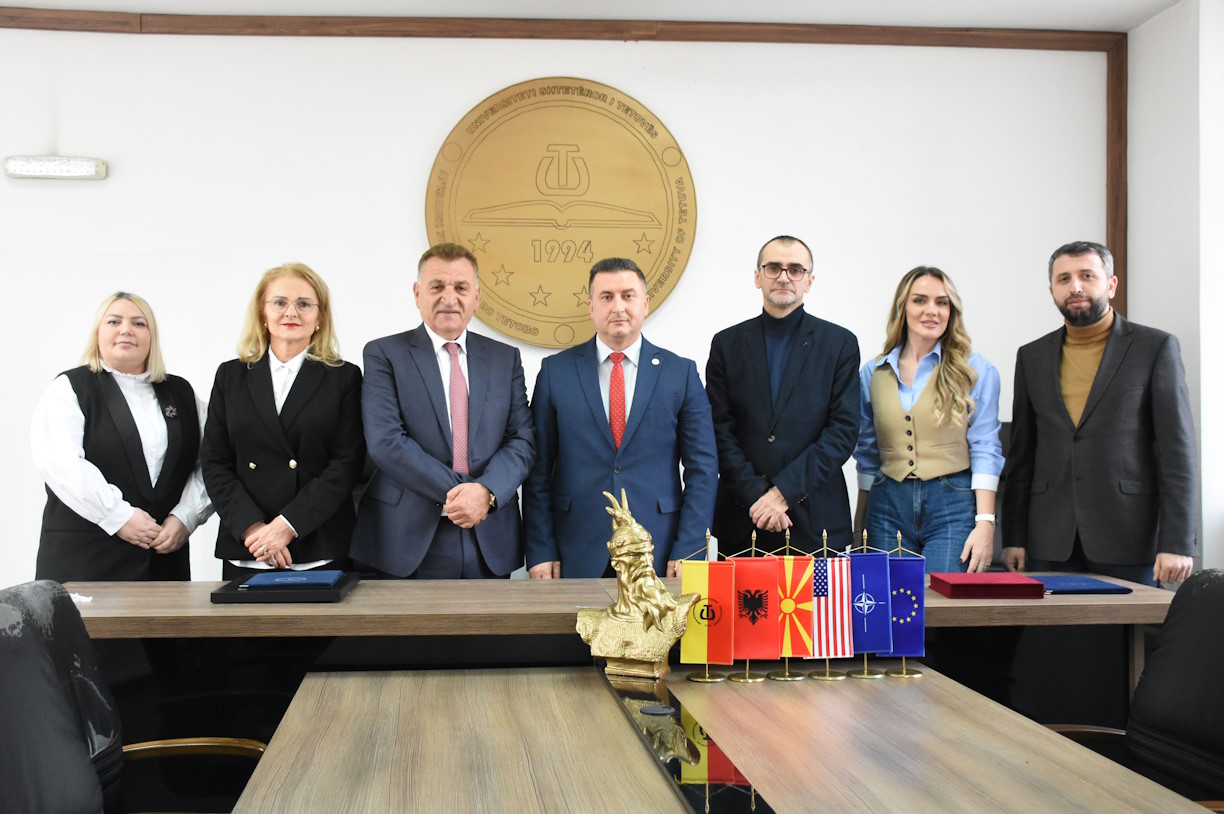At the Faculty of Law of the University of Tetova was promoted the book “Sovereignty and Legitimacy of the State of Kosovo” by the author Dr. Sc. Salihe Salihu. This book, among other things, breaks down the efforts and perspectives of Kosovo for the future, where the prolongations in this process are also addressed and examined.
Dean of the Faculty of Law of the University of Tetova, Prof. Dr. Jusuf Zejneli emphasized that the book will be a great help for the students of the Faculty of Law, as they will have the opportunity to get to know in detail the legal-constitutional processes of Kosovo in the historical aspect, how was the status of Kosovo within the former Yugoslav Federation and how it is now, but also what are the claims of the state of Kosovo in relation to the UN, NATO and the European Union.
The reviewer of the book, Prof. Dr. Arsim Bajrami stated that the book as a whole has a powerful scientific substance and deserves to be ranked as a university book in several academic units and is of particular use to students and scientific researchers. As he said, the author with academic skills has managed to reflect this process from three scientific perspectives: historical, legal and political. Precisely her approach through the interweaving of scientific perspectives shows that the author has an advanced tradition of scientific work. It also touches on the most specific aspects and moments chronologically detailing the key factors that contributed to the declaration of Kosovo’s sovereignty and legitimacy. It has also reflected NATO’s international assistance, bringing arguments in favor of humanitarian intervention and the necessity to intervene.
The historian, as well as the reviewer of the book, Prof. Dr. Fehari Ramadani said that this work contains a very detailed information about the Kosovo War, the crimes committed during 1998-1999, NATO’s military intervention, the transitional government, the process towards Kosovo’s independence and sovereignty, the legitimacy of the military intervention of the North Atlantic Treaty Organization and that of the Independence of Kosovo. “With this work, the author reflects the colonizing and exterminating policy that the Serbian state developed in Kosovo for a period of almost a century. The author provides important data on murders, massacres, mass graves, rapes and missing persons, imprisonments, and even the expulsion of the Albanian population from Kosovo. It presents data on the destruction, looting, burning and trauma caused by the invaders.
While the author of the book, Dr. Sc. Salihe Salihu said that the idea for this book came out in 2002-2003, when she was doing her master’s degree in Political Science at the Lund University in Sweden. “Then I wanted to argue in Swedish language that Kosovo deserves sovereignty. At that time, I did not have a PhD and I was in the process of master studies and I was denied this right, because it was a hypothetical thesis and it was not known where the issue of Kosovo was headed, whether it would gain sovereignty or not. During my studies there, I strengthened my ideas even more I received information and extraordinary scientific materials about the issue of Kosovo. The opportunity was given to me at the University of Tetova, to which I am very grateful for everyone’s support and I was able to elaborate on this topic, but my focus was oriented on what sovereignty Kosovo actually has, is it legal sovereignty, is it internal sovereignty, or is it interdependent sovereignty. I read a lot, even from Albanian readers, different views, but I had to go to the basic principles where it was said that the sovereignty that Kosovo had meant an absolute sovereignty and this theory did not hold because the absolute sovereignty did not belong to Kosovo,” emphasized Dr. Sc. Salihe Salihu.
In the promotion of this book participated the Rector of the University of Tetova, Prof. Dr. Kushtrim Ahmeti, President of the Senate, Prof. Dr. Vullnet Ameti, President of the Democratic Union for Integration, Vice-Rector for Finance, Prof. Dr. Faton Shabani, senators, deans, professors, students, as well as other guests.
